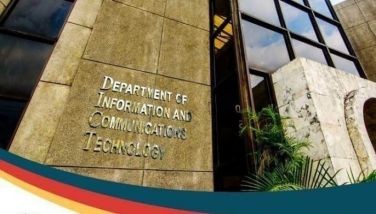Aqualab Phils asks SC to reconsider ruling on Cebu land property dispute
A Cebu-based firm engaged in the aquaculture business is asking the Supreme Court’s Second Division to reverse its earlier ruling affirming a decision by the Court of Appeals which ordered the nullification and cancellation of the company’s titles covering some 1.7 hectares of land in Lapu-Lapu City, Cebu.
In a 51-page supplemental motion for reconsideration, Aqualab Philippines Inc. asked the Court to reconsider and set aside its Sept. 29, 2008 resolution and affirm Aqualab’s ownership of the disputed 1.7 hectares of land property in Lapu-Lapu City.
In its one-page resolution of Sept. 29, 2008, the High Court’s Second Division denied Aqualab’s petition for review seeking to reverse and set aside the Court of Appeals decision dated March 15, 2007, which overturned the Sept. 30, 1997 decision of Lapu-Lapu City Regional Trial Court, Branch 53, that dismissed the complaint for declaration of nullity of documents, cancellation of transfer certificates of title and reconveyance with right of legal redemption filed by respondents heirs of Marcelino Pagobo on the ground of lack of cause of action and prescription.
The CA decision penned by Associate Justice Francisco Acosta of the CA’s 18th Division in Cebu, also ordered the nullification and cancellation of Aqualab’s TCT Nos. 18442 and 18443 issued by the Register of Deeds of Lapu-Lapu City.
Aqualab, however, stressed that that as early as 1977, the Supreme Court had validated certain conveyances of portions of the property from where its land used to be a part of “and which decisions have not been questioned by the government since 1977 and until the present, such that no reasonable conclusion can be had that the government has already recognized the validity of the ownership and title of the transferors.”
“In the end, all the petitioner prays for is that this Honorable Court carefully examines the facts, carefully applies the proper laws and jurisprudence in their appropriate perspective and in accordance with their intent, and hopefully, arrive(s) at a more circumspect decision to ensure that no constitutional right, no injustice and no law or jurisprudence has been transgressed,” Aqualab said.
“The petitioner respectfully invokes the power of the this Honorable Court as “the final arbiter of any justifiable controversy,” in its solemn quest for the reversal of its Resolution dated Sept. 29, 2008 . . . (to take) a second hard look on the circumstances of the instant petition, with the earnest hope that this Honorable Court would change its disposition, in order to rectify the reversible errors it committed when it affirmed the CA decision dated March 15, 2007, it appearing that this Court may have overlooked certain crucial points and arguments when it perfunctorily denied the instant petition via the questioned resolution,” Aqualab added in its petition.
According to Aqualab, the Court’s Second Division failed to indicate the legal and factual bases behind its denial of the petition, “which warrants the reversal on constitutional grounds.”
Aqualab stressed that the assailed resolution was rendered in violation of the petitioner’s right to due process, thus, contrary to Court’s jurisprudential fiat that “elementary due process demands that the parties to litigation be given information on how the case was decided, as well as an explanation of the factual and legal reasons that led to the conclusions of the Court.”
Aqualab argued that when the CA reverses a lower court’s dismissal of a case upon a motion to dismiss, the CA should refer the case back to the lower court for further proceedings.
Records show that on Aug. 10, 1994, the heirs of Pagobo filed the complaint seeking the nullification and cancellation of the Aqualab land titles to the disputed property, and instead sought that new land titles be issued in the name of the respondents.
On Sept. 30, 1997, the lower court granted Aqualab’s motion to dismiss the complaint on the ground of prescription.
The lower court also junked the respondent’s appeal for legal redemption of the disputed property, noting that the property has already been subdivided into 34 lots and in fact several of those lots had been the subject of numerous transactions resulting in the issuance of certificate of title to various person.
“If the property has been partitioned or an identified shares has been sold, then there can be no longer any right of redemption,” the RTC said, in its decision.
Aqualab, which asserts itself as a buyer in good faith, claimed that Lot No. 6727-Q and Lot No. 6727-Y, with a total area of 1.7 hectares, were sold to Tarcela de Espina and TCT No. 3294 was issued in her favor by the Register of Deeds of Lapu-Lapu City on April 20, 1970, while Tarcela in turn sold the two lots to Rene Espina and TCT No. 17830 and TCT No. 17831 were issued in his favor by the Register of Deeds.
Rene Espina, on the other hand, sold the two lots to Anthony Gaw Kache and subsequently issued with titles on two lots on November 9, 1987 and February 22, 1988, before these were sold to Aqualab, where TCT No. 18442 and TCT No. 18443 were issued in its favor by the Register of Deeds of Lapu-Lapu City on May 4, 1988.
- Latest
- Trending




























